The Derby, the Sheikh and the Missing Princess (Or: How Human Rights Became the Talk of a Horse Race)
The select yearling sale at Keeneland Race Course in Lexington, Ky., is where the world’s big players converge each year to throw staggering sums of money at thoroughbred racing dreams. Much of the most expensive horseflesh on the planet is paraded through a pavilion at the bucolic track in the Bluegrass region, with high rollers from the U.S., Europe, Asia and the Middle East silently signaling bids that can run well into seven figures. And it was at the Keeneland sale some 20 years ago that the world’s most aggressive equine purchaser probed the world’s hottest trainer on the question that was consuming him: “What does it take to win the Kentucky Derby?”
By that point, Sheikh Mohammed bin Rashid Al Maktoum had already tried several times at Churchill Downs, with disappointing results. So the crown prince of Dubai—the biggest spender in an ecosystem of big spenders—posed a grandiose premise to Bob Baffert: “Do you think I can do it if I buy 100 yearlings?”
“No,” replied Baffert, who back then had already won the Derby in 1997 and ’98, with Silver Charm and Real Quiet, a pair of relatively inexpensive colts. “You’ve got to buy the right one.”

Baffert related that anecdote this week outside of his Barn 33 at Churchill Downs, the trainer’s famed white hair framed by plaques commemorating past Kentucky Derby victories. He’s won four more times since that Keeneland conversation with the Arab leader, whose own long and Quixotic quest to capture a single Derby remains unfulfilled. For years, Sheikh Mohammed approached America’s biggest race with pridefulness, arrogance and a controlling instinct—characteristics that also have shaped his family life, leading to a dysfunctional soap opera that recently spilled into public view and cast him as, at best, a misogynist. And at worst, a criminal. Last week, in a complaint filed with the Kentucky Horse Racing Commission, human rights lawyers and University of Louisville students urged that the sheikh (and his horse) be banned from this year’s race for alleged human rights abuses relating to claims that he abducted his daughters and held them against their will.
Yet, even as those accusations (which he denies) have proliferated in the media, the 71-year-old sheikh now possesses his best chance yet. About 100 yards away from Baffert’s stable, the horse that most closely resembles “the right one” resides in Barn 22, waiting for Saturday. Essential Quality, the undefeated North American two-year-old champion, is the favorite (2-to-1 odds as bets were being accepted Friday morning) heading into the 147th Kentucky Derby.
From his birth in April 2018, the inquisitive gray colt’s life has unfolded according to a grand plan. Homebred at Jonabell Farm in Lexington, which is owned by the Sheikh’s worldwide Godolphin breeding and racing operation, Essential Quality has looked and acted the part of a champion from the beginning. “He never went through an awkward stage,” says Jimmy Bell, president of Godolphin USA. “We went back and looked at his pictures—he’s been one of those well-balanced individuals all along. He’s been a shapely, athletic-looking colt from early on.”
Essential Quality ran to his looks, each race better than the last, according to his Beyer Speed Figures (an industry-wide metric that combines time, distance and track speed): from a pedestrian score of 69 in his debut last September to an 88 in his second race; then a 95 while winning the Breeders’ Cup Juvenile in November, stamping himself as the early Derby favorite; and finally a 96 and a 97 in two stakes wins at age three. (No other horse in the 2021 Derby field has three career Beyer scores of 95 or better.) And his morning workouts have followed a similarly smooth progression. In a sport infamous for sudden detours, hiccups and bad breaks, Essential Quality’s path to this point has been blissfully bereft of drama.
The same cannot be said for the leading contender’s trainer, 41-year-old Brad Cox, who’s saddling his first Derby entrant nearly a decade after diminishing results led a previous employer to take away almost all of his horses. With just a couple of runners left in his Churchill barn, Cox methodically built back up, big wins begetting better horses, until deep-pocketed clients took notice. Finally, Cox was identified by Godolphin as a desirable trainer in a desirable location with a desirable obsession. “Horses, horses, horses is all he thinks about,” says Bell. “I’m not so sure he doesn’t have a photographic memory. He is so quick with what his horses are doing, what other horses are doing, who’s winning. He’s completely absorbed.”

Cox started training two-year-olds for the sheikh in 2019, and he welcomed Essential Quality into his barn as part of a second crop last year. After the colt’s first workout, at Keeneland, he told Bell, “I think this one is a little different than the rest.”
Undoubtedly, this owner-trainer coupling is an odd one. Sheikh Mohammed, the vice president of the United Arab Emirates, is worth an estimated $4 billion, including his Godolphin branches in Australia, England, France, Ireland and Japan. A lifelong equestrian, he and his family turned an ancient Middle Eastern love affair with horses into a massive industry in Dubai. Meanwhile: Cox, from Louisville’s blue-collar South End, hardly represents a global profile. At Iroquois High, he spent more time reading the Daily Racing Form than he did textbooks. He never even considered college. “I attended the University of Churchill Downs,” Cox says with a laugh.
Mohammed’s education has come at the School of Derby Hard Knocks. Before his first visit to Louisville, in 1999—when his horse, Worldly Manner, finished seventh—the sheikh declared, “My aim is to win it within the next four years.” But he was slow to respect the time-immemorial method of finding the winner’s circle on the first Saturday in May. Godolphin tried repeatedly to win the Run for the Roses with horses conditioned overseas, under trainers unaccustomed to American racing, and the sheikh has been met with humbling results. His average Derby finish, across 11 starts, is 10th. (The nadir came in 2017, when Thunder Snow, who campaigned solely in Europe and Dubai, came out of the starting gate kicking and bucking, refusing to run a step, and was pulled up, uninjured, after a furlong.) In ’01, Sheikh Mohammed conceded: "The Kentucky Derby is a more difficult race to win than I first believed.”
At last, though, the sheikh’s failed import strategy has given way in recent years to what could be called a hyper-local approach. Kentucky-bred Essential Quality has never raced outside the Bluegrass State, and Cox is seeking to become what is believed to be the first Louisville native to train a Derby winner in the race’s 147-year history.
In the end, it may take a kid who grew up in the shadow of Churchill Downs to deliver an overdue Derby to Dubai.
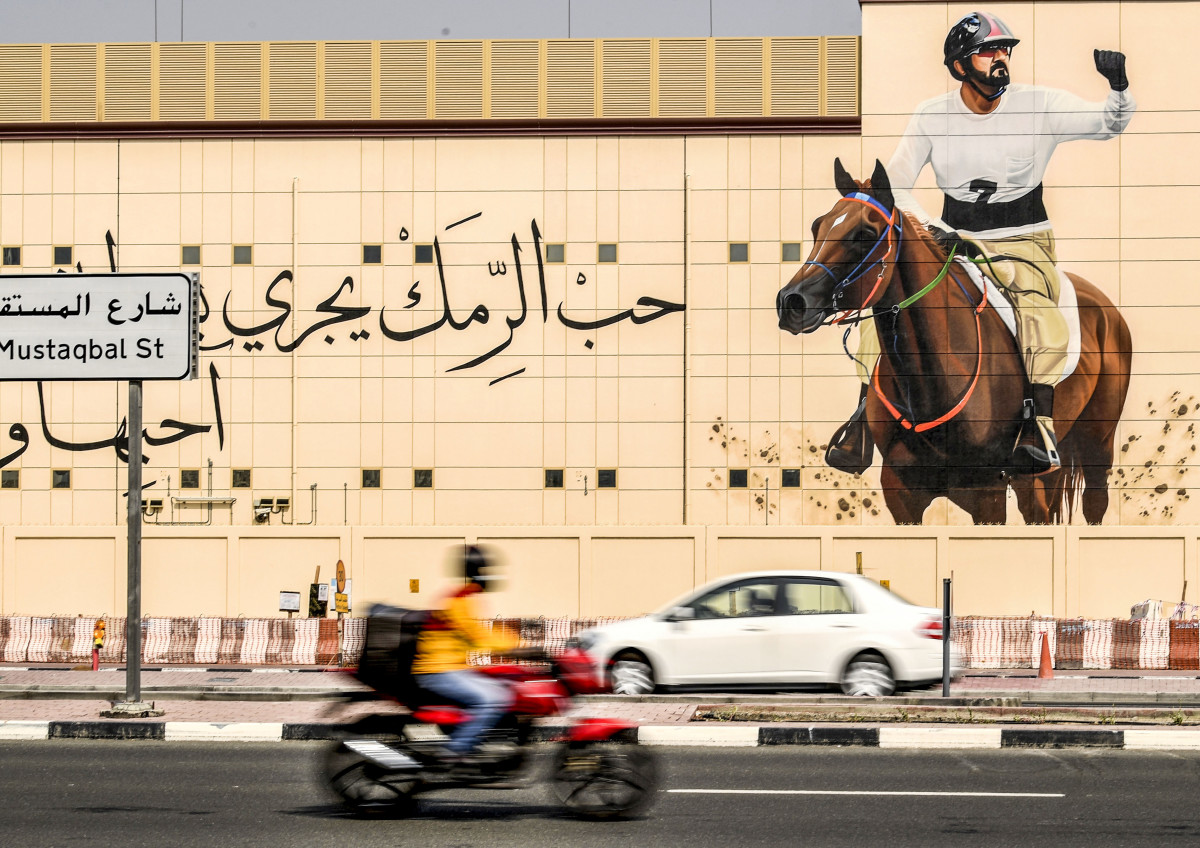
The house at 903 W. Evelyn Ave. is like so many others on the block: a white, wooden dwelling, tiny enough to be almost completely obscured by a dogwood blooming in the front yard. The next street over is Dresden, and beyond that is Longfield, which runs along the backside of the most famous racetrack in America. On Derby day, folks living on Longfield sell parking spots in their yards for as much as $50.
This year, one of their own will be trying to win the damn thing. As a kid, Brad Cox could walk two blocks and gaze at expensive thoroughbreds as they grazed outside their barns. He could open the back door to his house and hear the call of the races—and feel his calling.
Jerry Cox operated a forklift for Henry Vogt Machine Co., and in his downtime he was a $2 bettor at Churchill. His oldest son, Doug, never got the racing bug. But Brad, 18 years Doug’s junior, was consumed at an early age.
“I was fascinated by it,” says Brad Cox. “In the fall and the spring I couldn’t wait to get out of school and get to the racetrack. My dad would get forms on the weekend and I would keep all of them. I had a stack in my room—we could not throw them away.”
As a preteen, Brad Cox finagled his way onto the backside at Churchill for the 1992 Derby, watching Lil E. Tee win, with local legend Pat Day riding. The heavy favorite that afternoon was Arazi, who’d trained in Europe and who’d dazzled the previous fall in winning the Breeders’ Cup Juvenile. Sent off at better than even money to win, Arazi made a bold move on the turn … and then went flat in the stretch, finishing eighth. The minority owner of the colt: Sheikh Mohammed, who that day experienced his first Derby comeuppance.
A year later, at 13, Cox lied about his age and got himself a job as a hotwalker, cooling down horses at the Churchill barns after their morning gallops. All the while, he kept a spiral notebook, jotting down the names of horses for which he would put in a claiming bid if ever he were so positioned. At one point, he announced to his father that he would become “the next D. Wayne Lukas,” citing the sport’s dominant trainer of the time.
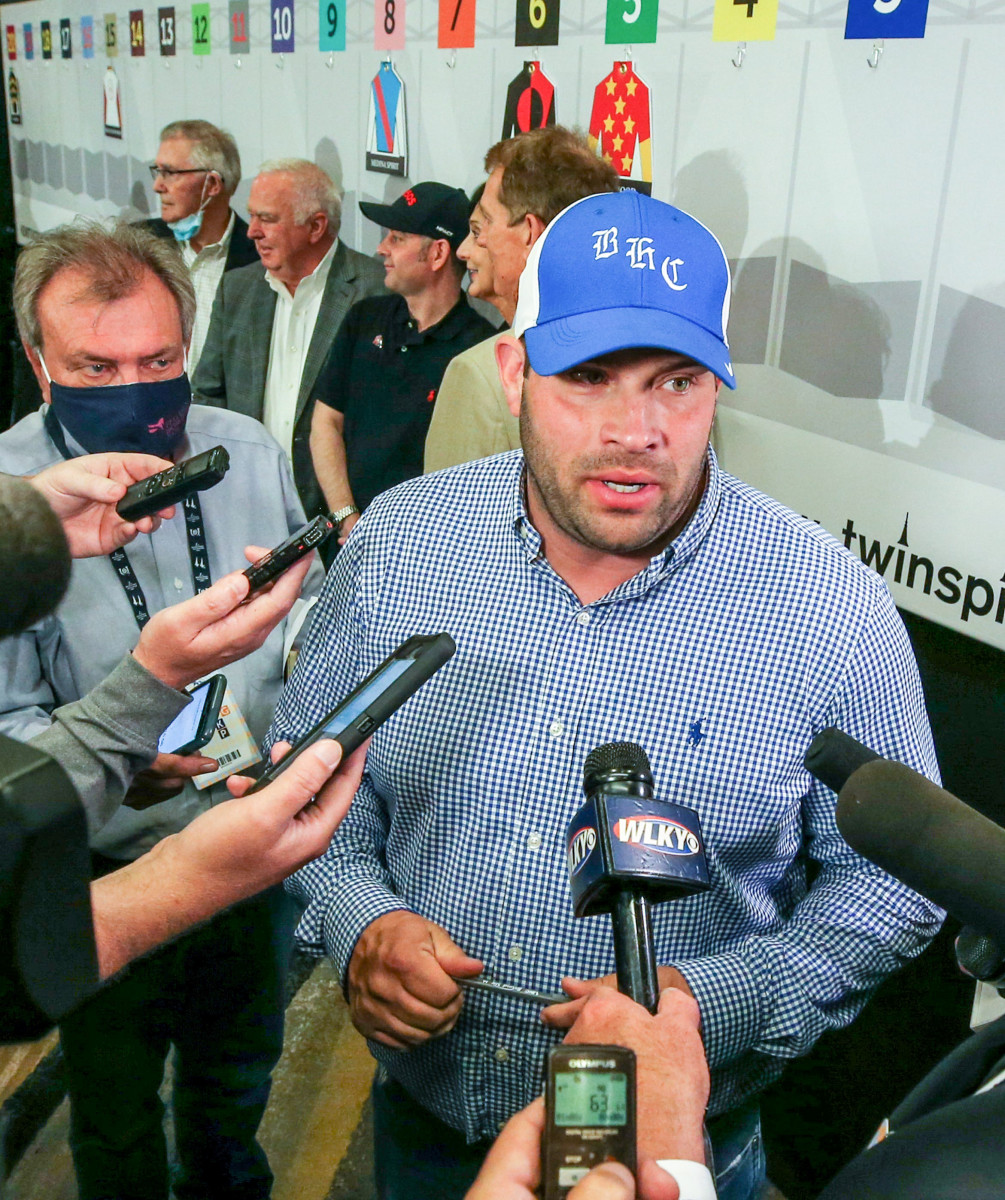
After eking through at Iroquois (“Sometimes I wonder how [I graduated],” he says), Cox was ready to dive full-time into racing. He worked as an assistant to Burk Kessinger and Jimmy Baker, and then as a barn foreman for Dallas Stewart. All along, though, he was making plans to start his own stable. His brother Doug remembers feed tubs and stall webbing being delivered to the house on Evelyn Ave. “He was basically training Dallas’s horses,” Doug says. “That prompted him to make the jump.”
At 24, Cox dove into the claiming ranks, putting into action the ideas he’d jotted into that notebook as a teen. Slowly, he made headway, and in 2010 he was hired by Midwest Thoroughbreds, a big operation that does most of its work with claimers—but quickly it all fell apart. His earnings fell from more than $900,000 in ’10 to less than $550,000 in ’11. In ’12, at age 32, and with two young sons, Bryson and Blake, at home, he answered the phone and was fired. Thirty of his horses were moved to a trainer on the East Coast.
“It was an empty feeling,” says Cox, who was left with just a couple of animals in his care. “[Bryson and Blake] were used to coming to a barn full of horses. … You kind of feel like you’re letting your family down.”
Cox never contemplated giving up, though. He set a goal of picking up a horse each week; he even took out an ad in the Racing Form to drum up business. And three months after being dumped by Midwest, he already had 15 horses. Still, the road back, on the local circuit, was hardly glamorous. Freezing winter nights at Turfway Park, near Cincinnati. Witheringly hot days at Ellis Park, outside Evansville. “It’s felt like a slow build,” says Cox of his path to today, “because there were a lot of lean years.”
The breakthrough—at Kentucky Oaks, with Monomoy Girl—didn’t come until 2018, but the subsequent success has been prodigious. Cox has earned more than $60 million in purses across the last four years. In a sport cynical about doping, that quantum leap up the training ranks has come with customary suspicion. Cox has received eight medication fines during his 17-year training career, according to the Jockey Club database (one in the last two years, and a pair in each of 2019 and ’18). Baffert has had more recent cases, while others in this Derby (Todd Pletcher, Doug O’Neill, Mark Casse) have had fewer.
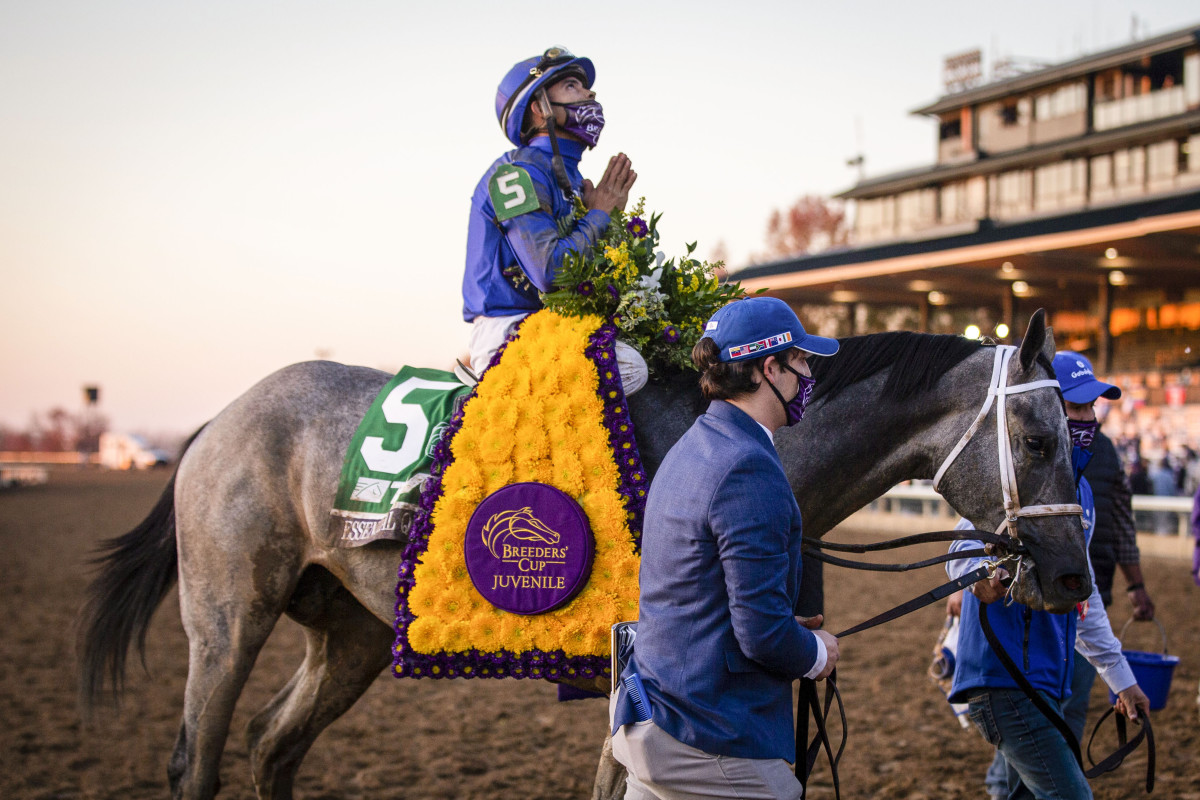
There have been no medication violations, though, with Cox’s big winners, and in a sport that prizes results over all else, high-end clients have flocked to his barn. None are bigger than Godolphin, which added Cox (among others) to its trainers list with prestigious American races in mind. The operation’s famed royal-blue silks were coming to his barn. “When they call you, you know you’re going to have horses with big pedigrees,” Cox says. “It was an honor.”
That honor has been mutual. As a trainer, Cox is bringing Godolphin (and Juddmonte Farms, the owner of his 15-to-1 Derby shot, Mandaloun) to the Derby. And, in turn, the Dubai outfit is helping the kid from Evelyn Ave. enjoy a lifestyle far beyond what he’d ever imagined. He recently bought a house in Audubon Park, and he moved his mother, Mary, into a nearby home. It’s to the garage of the latter residence that he delivered a gift after his wins at the 2018 and ’20 Kentucky Oaks: the blanket of Lilies that is traditionally draped across the winner.
Says Doug Cox: “We’d like to bring the roses over next.”
As optimism grows in Sheikh Mohammed’s camp for a Kentucky Derby breakthrough, the heat is being turned up in the larger world. Last week, human rights experts with the United Nations weighed in on the disconcerting public disappearance of the sheikh’s 35-year-old daughter, Sheikha Latifa, an ongoing news story that was reignited in February following the release of a BBC exposé that included cellphone video of the princess saying she was being held against her will in Dubai. The UN called upon UAE officials to, essentially, prove she was alive and well, noting that “her continued incommunicado detention can have harmful physical and psychological consequences and may amount to cruel, inhuman or degrading treatment.” (The Ruler's Court of Dubai has previously stated: "Her Highness Sheikha Latifa is alive, safe and in the loving care of her family. .. She was and has never been arrested or detained. Sheikh Mohammed, through Godolphin USA, declined to comment for this story; he has not been charged in any court of law.)
The negative light shined upon Sheikh Mohammed has exposed the dark side of a man who carefully cultivates his public image. In a region lagging far behind much of the rest of the world in terms of women’s rights, he has become the latest face of Middle Eastern female oppression. Whereas he has long been a pillar of gentrified society in England, the sheikh’s recent controversies have led to even Queen Elizabeth distancing herself from her horse-racing friend, according to reports.
“His main concern appears to be his own reputation, at any cost,” says Tiina Jauhiainen, a Finnish friend of Sheikha Latifa’s who says she helped the sheikha try to escape Dubai in 2018 and who has—after Latifa’s subsequent capture and return—campaigned for her freedom. “[The sheikh] has transformed Dubai into a popular business and holiday hub, and its image means everything. But the truth has emerged over the past few years, with women of his family fleeing Dubai. Despite all the p.r., it is obvious that Dubai is not a good place to be for any woman.” (Indeed, Latifa is not the only female relative of Sheikh Mohammed’s to attempt escaping his control: Another daughter, 39-year-old Princess Shamsa, was reportedly found on the run from his home in 2000 and was returned to Dubai. And in ’19 the sheikh’s so-called “public wife,” Haya, applied at the U.K. High Court in London for a forced marriage protection order and wardship of their two children. The sheikh is believed to have six wives and 25 children.)
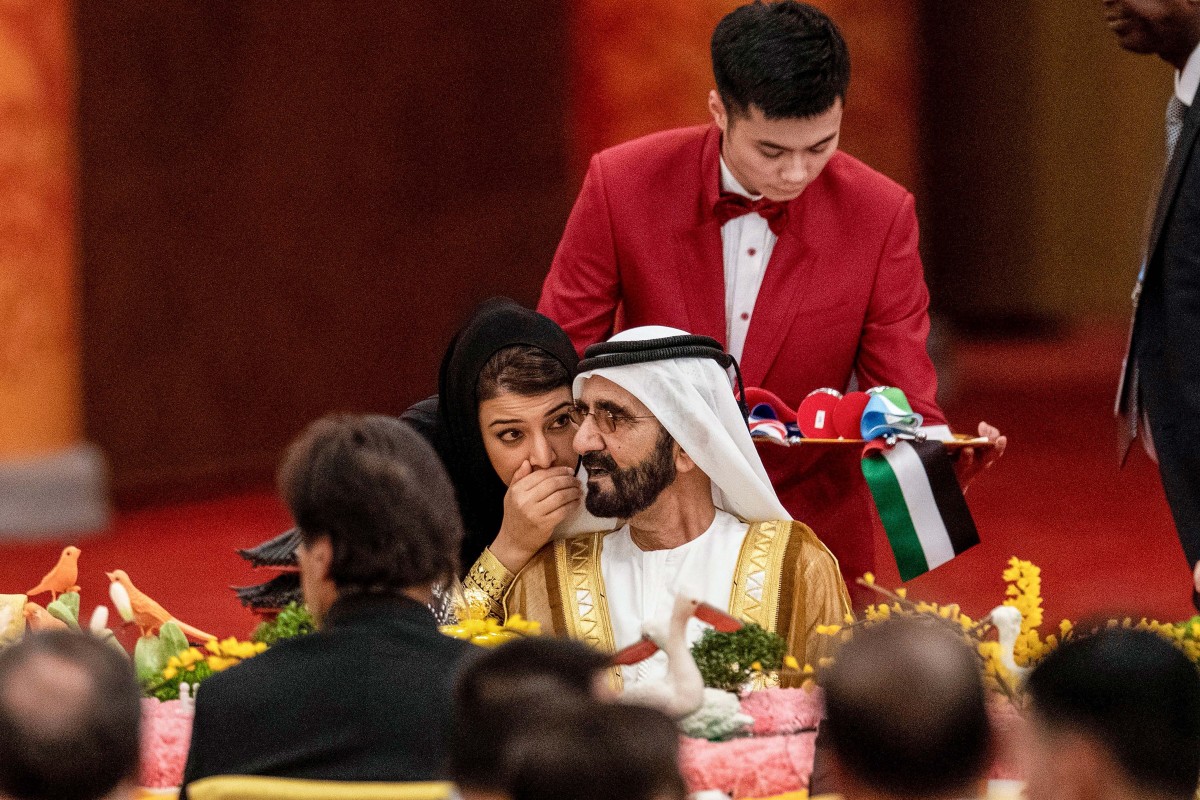
The alleged circumstances of Sheikha Latifa’s failed escape from Dubai read like a suspense novel. Along with Jauhiainen (who first served as the sheikha’s fitness instructor and became a close confidant), she used a disguise to elude surveillance and drove to Dubai’s border with Oman. From there, the two women used a dinghy and jet skis to get 15 miles out into the Arabian Sea, where they met a boat piloted by a man the BBC describes as a “former French spy.” For eight days, the three sailed toward India, with the hope of flying to the U.S. and seeking asylum—but their vessel was boarded by armed men off the coast of India and they were apprehended by force.
“The worst thing was seeing my best friend brutally taken away and her dream of freedom being crushed,” says Jauhiainen. “She was kicking and screaming. … She knew that she was probably going to be taken to the place that she was so desperately trying to flee.”
Indeed, the two women were returned to Dubai—Latifa remained under lock and key, and Jauhiainen was detained for two weeks before being released. Fast-forward a year and Jauhiainen says she was contacted by a mysterious intermediary, through whom she managed to get a secret phone to the princess. They resumed contact, with Latifa sending out videos detailing her life in confinement. ("Every day I am worried about my safety and my life,” she said in one message. “I don't really know if I'm going to survive this situation. The police threatened me that I'll be in prison my whole life and I'll never see the sun again. So I'm not safe here.")
In 2020, after Sheikha Latifa abruptly stopped communicating, Jauhiainen and human rights attorney David Haigh decided to go public with the videos, hoping to bring the princess’s plight to the forefront. The subsequent BBC reporting has been met with silence from Dubai.
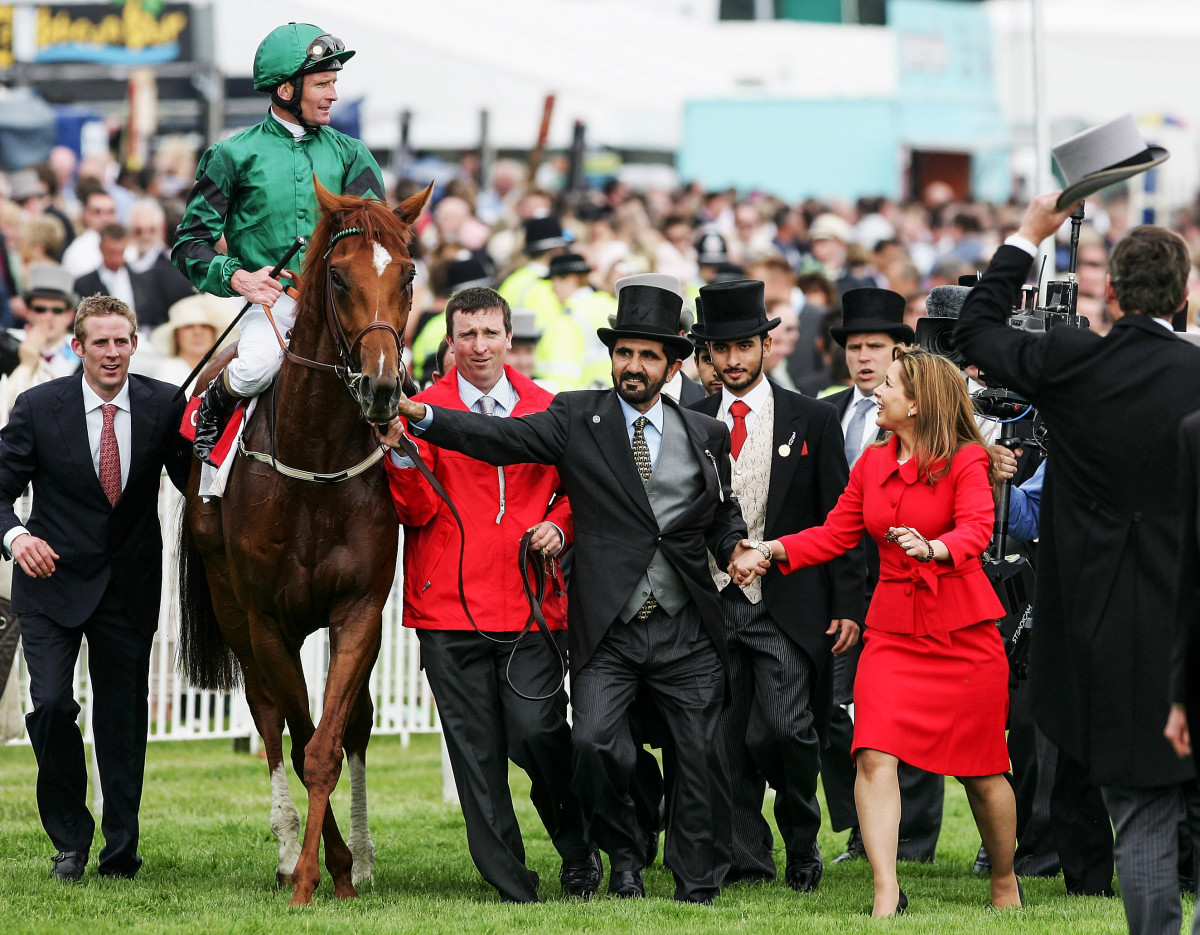
While the Derby festivities usually provide a cocoon from outside controversy, the complaint filed with the Kentucky Horse Racing Commission last week underscores the fact that Sheikh Mohammed’s issues cannot be disregarded. “The commission has in the past suspended people or barred them for their actions,” Louisville law professor Sam Marcosson told the Lexington Herald-Leader this week. “We think since they have acted on other issues, they should do so when someone is involved in gross human rights violations.”
But the chances of the KHRC taking action are remote. Besides: Bell, the head of Godolphin USA, has said that the Sheikh is not expected to attend Saturday’s race anyway. (As for banning the Derby favorite: That’s not happening.)
Across time, the sport of horse racing has had countless fine people in its ranks. It also has seen more than its share of robber barons and mercenaries and cutthroats who reached the winner’s circle by any means necessary. The moral ambiguity that comes with racing tends to be accepted more willingly than in other sports, where champions are too often imbued with manufactured virtue. Here, two values are prized most: wealth, and a willingness to invest that wealth in the sales ring and at the races.
That's about as deep as it gets. Sheikh Mohammed manages to check both those boxes, and that's why a victory by Essential Quality would be celebrated by many in the industry. It would indeed be quite a story: the billionaire head of a global thoroughbred juggernaut realizing that he needed a guy who grew up in the shadows of the twin spires to win the race that eluded him.
But there is much more to this Kentucky Derby story, and not all of it is tidy or happy.
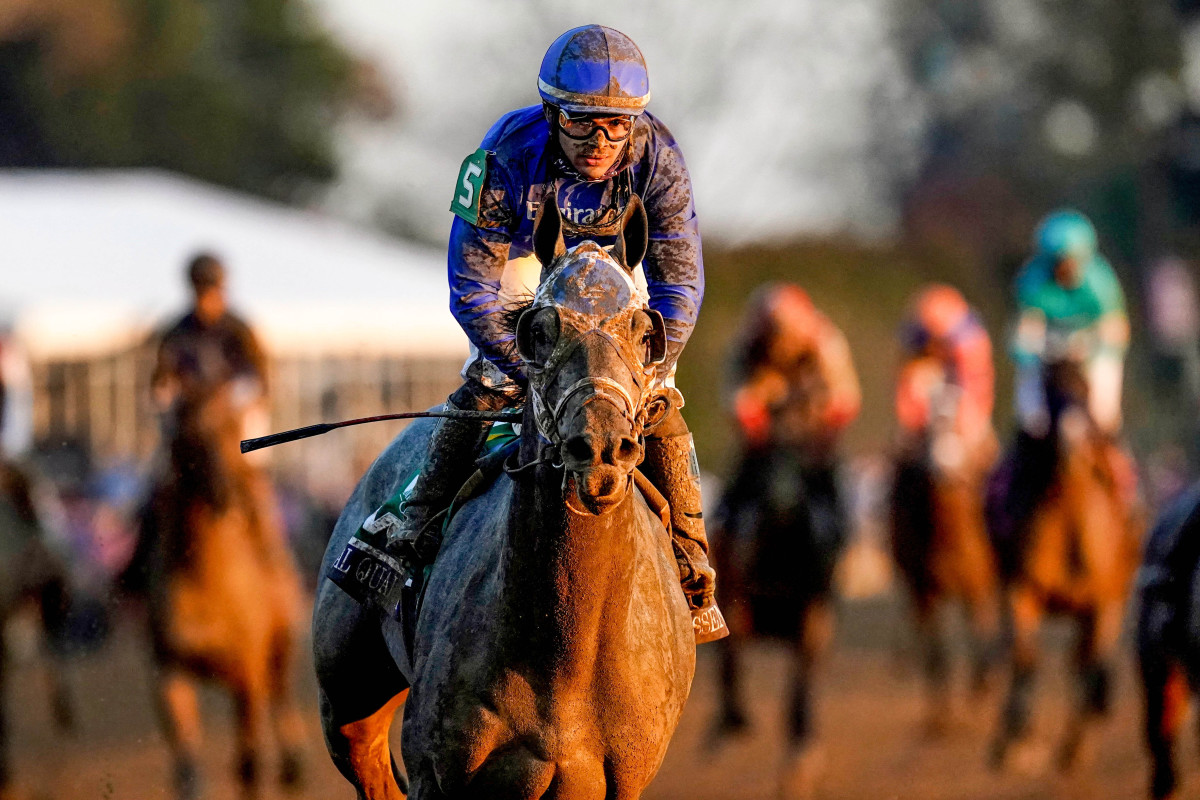
More SI Daily Covers:
• Pleasant Colony and the Crown of Thorns
• Alex Smith Healed Enough To Walk Away
• This Basketball Season Is Missing One Thing: Prince
